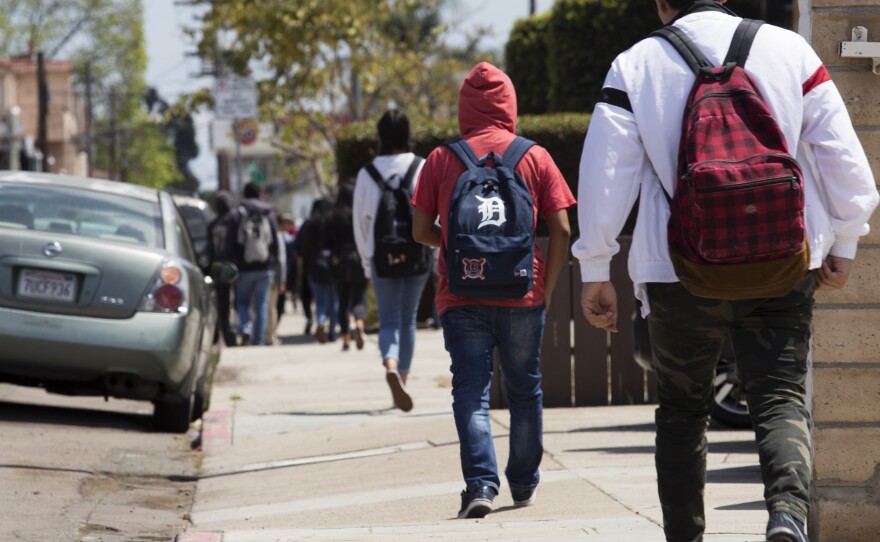The state schools superintendent has rejected Congressman Scott Peters’ plea to reconsider the San Diego Unified School District’s disqualification for up to $750,000 in funding for homeless students over the next three years.
inewsource reported last month that the state Education Department disqualified the district’s 43-page grant application because it was missing a signature from a finance official.
In a May 25 response to Peters, Superintendent Tom Torlakson said the state Education Department does not receive enough funding now to support all of the districts that apply for the federal money. He said the required page of signatures that San Diego Unified failed to complete shows a district’s “commitment to comply with the assurances, certifications, term, and conditions associated with the grant and grant application.”
Last year, San Diego Unified had the third highest number of homeless students in the state, behind Los Angeles Unified and Long Beach.
The state allocated $7.3 million during the 2016-17 school year to support more than 202,000 homeless students, which amounts to about $36 per student. Torlakson said he would welcome help from Peters, a San Diego Democrat, to get more money.
“If given funding to support all homeless youth in California, the (Education Department) would fully support moving from the existing competitive grant process, which denies school districts, county offices of education, and homeless students of funding and services that are needed,” Torlakson wrote.
The state received 128 applications this year for the Education for Homeless Children and Youth grant. San Diego Unified was one of 15 districts to submit a flawed application, Torlakson said.
Seventy-three school districts and county offices — including four in San Diego County — will receive up to $250,000 each year for the next three years based on their homeless student enrollment.
Despite the loss of funding for San Diego Unified, the district’s program manager for Youth in Transition, Jennifer Coronel, has told inewsource support for homeless students won't end. She said unmet needs will be funded through other district money designated to support low-income students.
But some advocates for these students aren’t convinced.
Suzy Reid, chairwoman of a group that advises district officials on how to spend funds to educate low-income students, said she was told by two finance department officials that the lost money would not be “a serious blow” to the district’s budget.
“We are already going through such serious budget cuts and budget deficit,” Reid said. “I can't imagine that it wouldn't have an impact, and it may just be that they don't necessarily know what the impact would be because they've been getting that money every year for the last three years.”
San Diego Unified has faced substantial budget deficits of $124 million in fiscal 2018 and an expected $47 million shortfall in fiscal 2019. That has led to more than 1,100 early retirements for teachers and staff, as well as recommended cuts in administrative positions for the next fiscal year.
A proposed budget from March shows about $525,000 dedicated to supporting homeless and foster youth during fiscal 2019. That money would support two full-time staff positions, bus passes and other academic support.
Because Reid and others on the advisory board doubt the district can absorb the potential $750,000 in lost funding, they sent a letter on Friday to Torlakson. Like Peters, they asked him to reconsider San Diego Unified’s application and to improve how the state handles incomplete grant requests.
“It seems overly harsh to reject, without review, an application from a previously established grantee based on such,” they wrote about the missing signature. “What is the world coming to when the lack of a signature is keeping the third largest population of homeless students in California from receiving additional support and resources?”
San Diego Unified’s school board President Kevin Beiser and finance department officials did not respond to requests for comment about how the loss of funding may affect the district’s budget. Instead, district spokeswoman Maureen Magee told inewsource “the district does not anticipate any impact.”






